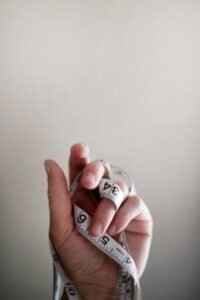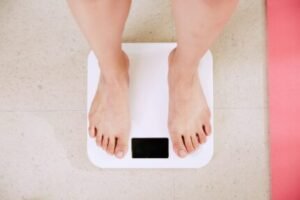Medically reviewed by Dr. Ramesh Gaddam, M.D. — Written by Sumalatha, D.N.H.E
Table of Contents
ToggleDaily water intake for staying hydrated is essential for good health. Drinking enough water daily supports digestion, energy levels, and overall well-being.
Most people need around eight glasses of water a day, but needs can vary based on activity level and climate.
Proper hydration helps your body function smoothly, from keeping your skin healthy to maintaining concentration.
Whether you sip water throughout the day or enjoy hydrating foods, meeting your daily water intake is a simple yet powerful way to boost health.
1. Role of water in the body
Water plays a crucial role in maintaining various physiological functions within the human body. Here are some key roles of water in the body:
Hydration and Fluid Balance:
Water is essential for maintaining proper hydration and fluid balance in the body. It helps transport nutrients to cells and remove waste products.
The balance of fluids is vital for maintaining blood volume, which, in turn, helps regulate blood pressure.
Temperature Regulation:
Sweating is one of the body’s mechanisms for cooling down. Water is a major component of sweat, and the evaporation of sweat from the skin helps regulate body temperature.
Joint Lubrication:
Water is a key component of synovial fluid, which lubricates and cushions joints. This is important for joint function and movement.
Nutrient Transport:
Water is the medium in which nutrients are transported throughout the body. It facilitates the movement of nutrients from the digestive system to cells and tissues.
Digestion and Nutrient Absorption:
Water is essential for the digestion of food. It helps break down large molecules, making them easier to absorb in the digestive tract.
Cell Structure and Function:
Water is a major component of cells, tissues, and organs. It is essential for maintaining cell structure and function.
Metabolism:
Water is involved in various metabolic processes, including the breakdown of carbohydrates, proteins, and fats for energy.
Electrolyte Balance:
Electrolytes, such as sodium, potassium, and chloride, are essential for many physiological functions. Water helps maintain the balance of electrolytes in and around cells.
Cognitive Function:
Proper hydration is important for cognitive function, including concentration, alertness, and short-term memory.
Detoxification:
Water plays a role in the elimination of waste products and toxins from the body through processes like urination and sweating.
It’s important to note that individual water needs can vary based on factors such as age, sex, weight, physical activity level, and climate. Maintaining proper hydration is crucial for overall health and well-being.
2. Factors Affecting Daily Water Needs
Several factors influence an individual’s daily water needs. These factors can vary from person to person and may include:
Body Weight:
Larger individuals generally require more water. Body weight is a significant factor in determining the necessary amount of water, as more tissue and cells require adequate hydration.
Age:
Infants, children, and older adults may have different water requirements compared to young adults. Children, for example, may need more water per unit of body weight than adults.
Sex:
Men typically have a higher percentage of lean body mass and may require more water than women.
Physical Activity Level:
Individuals who engage in regular physical activity or have a more strenuous workout routine may need more water to compensate for fluid loss through sweating.
Climate and Environmental Conditions:
Hot and humid weather increases the body’s need for water due to increased sweating. In such conditions, individuals may need to consume more water to stay properly hydrated.
Health Conditions:
Certain health conditions, such as fever, diarrhea, vomiting, and kidney disorders, can increase the body’s water needs. Pregnant or breastfeeding women may also require additional water.
Diet:
The type of diet can impact hydration needs. Diets high in salt or caffeine may increase fluid requirements, as these substances can contribute to water loss.
Medications:
Some medications, such as diuretics, can increase urine output and contribute to dehydration. Individuals taking such medications may need to adjust their fluid intake accordingly.
Individual Variations:
Each person’s metabolism and physiology are unique, and individual variations can affect water requirements. Some people naturally require more or less water to maintain proper hydration.
Pregnancy and Breastfeeding:
Pregnant and breastfeeding women have increased water needs to support the growth and development of the fetus or to produce breast milk.
3. Tips for Staying Hydrated:
Following are the important tips for staying hydrated to avoid dehydration:
8×8 Rule
A general guideline often recommended by health authorities is the “8×8 rule,” which suggests consuming eight 8-ounce glasses of water a day, totaling about 2 liters or half a gallon.
This is easy to remember and is a reasonable goal for many people.
Listen to Your Body:
Pay attention to your body’s signals, such as thirst. If you’re thirsty, it’s an indication that your body needs more water.
Consider Physical Activity:
If you engage in regular physical activity or live in a hot climate, you may need more water to compensate for fluid loss through sweating.
Check Urine Color:
A light yellow or pale straw color is often an indicator of adequate hydration. Dark yellow or amber urine may suggest dehydration.
Spread Intake Throughout the Day:
Instead of consuming a large amount of water at once, spread your water intake throughout the day for better absorption and hydration.
Include Water-Rich Foods:
Incorporate water-rich foods into your diet, such as fruits and vegetables. These contribute to overall hydration.
Limit Caffeine and Alcohol:
Caffeine and alcohol can have diuretic effects, leading to increased fluid loss. Consume them in moderation and balance them with water intake.
Account for Individual Factors:
Consider factors like age, weight, and health conditions when determining your water needs. Pregnant or breastfeeding women, for example, may need more water.
4. Signs of Dehydration
Dehydration occurs when the body loses more fluids than it takes in, leading to an insufficient amount of water to carry out normal bodily functions.
Recognizing the signs of dehydration is crucial for taking prompt action. Common signs and symptoms of dehydration include:
Thirst:
Increased thirst is one of the earliest and most obvious signs of dehydration. If you’re feeling thirsty, it’s a signal that your body needs more water.
Dark Yellow Urine:
Dark yellow or amber-colored urine can indicate dehydration. In a well-hydrated person, urine is typically light yellow or pale straw in color.
Reduced Urination:
Infrequent urination or a significant reduction in urine output may be a sign of dehydration. The kidneys try to conserve water when the body is lacking fluids.
Dry Mouth and Dry Skin:
A dry or sticky feeling in the mouth and reduced saliva production can be indicators of dehydration. Additionally, dry skin and lips may accompany dehydration.
Fatigue and Weakness:
Dehydration can lead to a lack of energy, fatigue, and a feeling of weakness. Inadequate fluid levels can impair physical and mental performance.
Dizziness or Lightheadedness:
Insufficient fluid levels can cause a drop in blood pressure, leading to dizziness or lightheadedness, especially when standing up quickly.
Headache:
Dehydration can contribute to the development of headaches. The brain temporarily contracts due to fluid loss, which can result in pain.
Rapid Heartbeat and Breathing:
Dehydration may cause an increase in heart rate and breathing rate as the body tries to compensate for reduced blood volume.
Sunken Eyes:
In severe dehydration, the eyes may appear sunken due to a lack of fluid in the body.
Confusion or Irritability:
Dehydration can affect cognitive function, leading to confusion, irritability, or difficulty concentrating.
Poor Skin Elasticity:
Pinching the skin on the back of the hand and observing how quickly it returns to its normal position is a quick test for dehydration. Poor skin elasticity may indicate dehydration.
5. Strategies for Staying Hydrated
Staying hydrated is essential for overall health and well-being. Here are some strategies to help you maintain proper hydration:
Drink an Adequate Amount of Water:
Follow general guidelines for daily water intake. The “8×8 rule” (eight 8-ounce glasses per day) or the Adequate Intake (AI) recommendations from health authorities can serve as a starting point.
Carry a Water Bottle:
Keep a reusable water bottle with you throughout the day. Having water readily available makes it easier to sip consistently.
Set Reminders:
Use phone alarms, apps, or other reminders to prompt you to drink water regularly. This is especially helpful if you tend to forget to hydrate during the day.
Infuse Water with Flavor:
If plain water doesn’t appeal to you, add natural flavors by infusing it with slices of fruits, vegetables, or herbs like cucumber, lemon, mint, or berries.
Create a Hydration Schedule:
Establish specific times during the day when you’ll drink water, such as before meals, between meals, and during breaks. This can help you develop a routine.
Monitor Your Urine Color:
Pay attention to the color of your urine. Light yellow or pale straw is generally a sign of adequate hydration, while dark yellow or amber may indicate dehydration.
Include Water-Rich Foods:
Consume fruits and vegetables with high water content, such as watermelon, cucumber, oranges, and celery. These foods contribute to overall hydration.
Balance Caffeine and Alcohol Intake:
If you consume caffeinated or alcoholic beverages, balance them with an increased intake of water. Both caffeine and alcohol can contribute to dehydration.
Listen to Your Body:
Respond to feelings of thirst promptly. Thirst is a natural signal that your body needs more water, so drink water when you feel thirsty.
Use a Hydration App:
Consider using smartphone apps designed to track your water intake. These apps often allow you to set goals and send reminders.
Monitor Physical Activity:
Adjust your water intake based on your level of physical activity. If you’re more active or exercising, you’ll need more water to compensate for fluid loss through sweating.
Drink Water Before, During, and After Exercise:
Stay hydrated during physical activity by drinking water before, during, and after exercise. The amount of water needed depends on the intensity and duration of the activity.
Remember that individual hydration needs can vary, and it’s essential to adapt these strategies to your personal circumstances.
If you have specific health conditions or concerns, consult with a healthcare professional for personalized advice on staying hydrated.
6. Sample Tracking Chart
| Time | Amount of Water Consumed |
|---|---|
| Upon Waking | |
| Morning | |
| Mid-Morning | |
| Before Lunch | |
| Lunch | |
| Afternoon | |
| Mid-Afternoon | |
| Before Dinner | |
| Dinner | |
| Evening | |
| Before Bed | |
| Total for the Day |
7. Tips for Using the Chart:
Establish a daily water intake goal based on general guidelines or personalized recommendations from healthcare professionals. Record your water intake throughout the day. Be consistent in updating the chart.
Include Beverages and Water-Rich Foods: Note the amount of water from beverages and consider water content from foods.
Increase water intake during periods of increased physical activity or hot weather. At the end of the day, review your chart. If you didn’t meet your goal, identify areas where you can improve and make adjustments for the next day.
Feel free to customize the chart to suit your preferences and lifestyle. You can create a physical chart on paper, use a hydration app, or make a digital version on your computer.
The goal is to make it a practical and accessible tool for tracking your daily water intake.
8. Symptoms of Drinking Too Much Water
While it’s crucial to stay hydrated, drinking excessive amounts of water beyond what your body needs can lead to a condition known as water intoxication or hyponatremia.
This occurs when the balance of electrolytes, particularly sodium, in your body is disrupted by an excessive intake of water. Here are some symptoms of drinking too much water:
Nausea and Vomiting:
Excessive water intake can lead to nausea, and in severe cases, it may result in vomiting.
Headache:
Water intoxication can cause the brain to swell, leading to headaches.
Confusion and Disorientation:
Changes in electrolyte balance can affect brain function, leading to confusion, disorientation, and in extreme cases, seizures.
Seizures:
Severe cases of hyponatremia may lead to seizures due to the swelling of the brain.
Hyponatremic Encephalopathy:
In extreme cases, water intoxication can lead to a condition known as hyponatremic encephalopathy, characterized by severe neurological symptoms.
Fatigue and Muscle Weakness:
Electrolyte imbalances can result in fatigue and weakness in the muscles.
Swelling (Edema):
Excessive water consumption may cause swelling in the body, known as edema, particularly in the hands, feet, and legs.
Difficulty Breathing:
In severe cases, water intoxication can lead to difficulty breathing due to the swelling of the brain affecting the respiratory centers.
9. Daily Water intake for weight loss
Staying adequately hydrated is important for overall health, and it can also play a role in weight loss. While there isn’t a one-size-fits-all recommendation for daily water intake specifically for weight loss, here are some general guidelines and considerations:
Follow General Hydration Guidelines:
Aim for the general recommendations provided by health authorities, such as the National Academies of Sciences, Engineering, and Medicine’s guidelines, which suggest about 3.7 liters (125 ounces) for men and 2.7 liters (91 ounces) for women per day, including all beverages and food sources of water.
Water Before Meals:
Drinking water before meals may help with weight loss by promoting a feeling of fullness, potentially reducing the amount of food you consume during meals.
Replace Caloric Beverages with Water:
If you’re trying to lose weight, consider replacing sugary beverages and high-calorie drinks with water. Water is calorie-free and can be a good substitute for calorie-dense beverages.
Stay Hydrated During Exercise:
Adequate hydration is essential, especially if you’re engaging in physical activity for weight loss. Drink water before, during, and after exercise to support performance and recovery.
Listen to Thirst Cues:
Pay attention to your body’s signals of thirst. Sometimes, feelings of hunger can be confused with dehydration. Drinking water when you feel thirsty can help prevent overeating.
Consider Water-Rich Foods:
Include water-rich foods in your diet, such as fruits and vegetables. These foods contribute to your overall hydration and can be part of a balanced, weight-loss-friendly diet.
Hydration and Metabolism:
While drinking water alone is not a magical solution for weight loss, staying hydrated is important for overall metabolism and can support the body’s ability to efficiently burn calories.
Summary:
It’s essential to approach weight loss in a holistic manner, combining a healthy diet with regular physical activity and proper hydration.
Drinking excessive amounts of water beyond what your body needs is not likely to result in additional weight loss and can even lead to water intoxication, as mentioned earlier.
Always consult with healthcare professionals or a registered dietitian for personalized advice based on your specific health conditions and weight loss goals.
10. Special Considerations
Hydration needs aren’t one-size-fits-all. Different groups, such as athletes, children, and seniors, have unique hydration requirements.
1. Hydration for Athletes
Athletes have higher fluid requirements due to increased sweat and fluid loss during physical activity. Here’s how to ensure they stay well-hydrated:
Drink fluids before exercise to start in a well-hydrated state.
Consume fluids regularly during physical activity to replace lost fluids. Sports drinks with electrolytes can be beneficial for prolonged or intense exercise.
Rehydrate after exercise with water or a recovery drink that includes carbohydrates and protein.
Weigh yourself before and after exercise to estimate sweat loss and adjust your hydration strategy accordingly.
2. Hydration for Children
Children have unique hydration needs because their bodies are still growing and developing. Here’s how to ensure they stay well-hydrated:
Encourage children to drink water regularly by setting a good example.
Offer water with meals and snacks rather than sugary drinks.
In hot weather or during physical activity, ensure children drink more water to compensate for fluid loss.
Teach children to recognize thirst as a signal to drink water.
3. Hydration for Seniors
As people age, their sense of thirst may decrease, making them more susceptible to dehydration. Here’s how to ensure seniors stay well-hydrated:
Encourage seniors to drink fluids regularly, even if they don’t feel thirsty.
Some medications can affect hydration. Be aware of potential side effects.
Include hydrating foods in their diet, such as fruits and vegetables.
Educate caregivers and seniors themselves to recognize signs of dehydration, such as dry mouth, dark urine, or confusion.
Frequently Asked Questions
Is 4 Liters of Water a Day Too Much?
While individual water needs vary, consuming 4 liters of water per day may be excessive for some people.
It’s generally advisable to follow recommended guidelines and adjust based on factors like age, weight, and activity level.
How Much Water Should We Drink Daily?
The recommended daily water intake varies, but a common guideline suggests about 3.7 liters (125 ounces) for men and 2.7 liters (91 ounces) for women, including all beverages and food sources of water.
Individual needs may differ.
How to Drink 2 Litres of Water a Day?
Achieving a daily intake of 2 liters can be manageable. Carry a reusable water bottle. Set hourly goals. Infuse water with fruits for flavor. Include water-rich foods in your diet.
How Much Water Per Person Per Day?
The ideal amount of water per person per day depends on factors like age, weight, and climate.
General recommendations aim for around 3.7 liters (125 ounces) for men and 2.7 liters (91 ounces) for women, considering all fluid sources. Adjust based on individual circumstances.
How to Drink Water Properly?
Sip throughout the day rather than consuming large amounts at once. Listen to your body’s thirst cues. Consider the color of your urine; light yellow is a good indicator. Carry a reusable water bottle for convenience.
How to Drink 3 Litres of Water a Day?
Setting a schedule to spread water intake throughout the day. Using a larger water bottle for fewer refills. Adding natural flavors like lemon or cucumber for variety.
Can I Drink 5 Litres of Water a Day?
While hydration needs vary, consuming 5 liters of water daily may be excessive for many individuals.
It’s crucial to balance water intake with individual factors and avoid overhydration.
Does Drinking Water Clear Skin?
Adequate water intake is beneficial for skin health.
Staying hydrated helps flush out toxins, promotes elasticity, and can contribute to clearer, healthier skin.
Is It OK to Drink 3 Liters of Water Daily?
Drinking 3 liters of water daily can be suitable for many people, depending on factors like age, weight, and activity level.
It’s generally within a reasonable range, but individual needs may vary.
Adjust based on personal circumstances.
Is 1 Liter of Water Enough for a Day?
While 1 liter of water a day may not be sufficient for most people, individual needs vary.
General guidelines recommend around 2-3 liters per day, including all beverages and food sources of water. Adjust based on factors like age, weight, and physical activity level.
What Is the Healthiest Water to Drink?
The healthiest water to drink is clean, filtered water.
Tap water meeting safety standards is often a good choice.
Natural spring water and purified water without added contaminants are also considered healthy options.
Am I Drinking Too Much Water?
Drinking too much water, known as overhydration, can be harmful.
It’s crucial to balance water intake with individual factors like age, weight, and activity level.
Excessive water consumption can lead to a condition called hyponatremia, disrupting electrolyte balance.
Is 1 Liter of Water Enough for a Day?
Consuming only 1 liter of water a day may not be sufficient for most individuals.
General recommendations aim for around 2-3 liters per day, including all beverages and food sources of water.
Adjust based on personal factors to ensure proper hydration.
Why Am I So Thirsty?
Several factors can contribute to excessive thirst, including:
- Dehydration
- High sodium intake
- Diabetes
- Medications
- Dry air or excessive sweating
- Stress or anxiety
Consulting with a healthcare professional can help identify the specific cause.
Why Do I Pee Immediately After Drinking Water?
Frequent urination after drinking water may be normal, as it can indicate your body is adequately hydrated.
However, it could also be a sign of conditions like diabetes or a urinary tract infection.
If concerned, consult with a healthcare provider.
How Can I Hydrate Fast?
To hydrate quickly: Drink water consistently throughout the day. Consume hydrating foods like fruits and vegetables. Consider oral rehydration solutions for faster electrolyte replenishment.
Can You Hydrate in 2 Hours?
While proper hydration is an ongoing process, consuming water and electrolytes over 2 hours can contribute to improved hydration.
However, individual needs vary, and sustained hydration is essential for overall well-being.
How to Hydrate Skin?
To hydrate the skin:
- Drink an adequate amount of water.
- Use a moisturizer suitable for your skin type.
- Consider a humidifier to add moisture to the air.
- Avoid hot showers, as they can strip the skin of natural oils.
- Use hydrating skincare products with ingredients like hyaluronic acid.
References:
- CDC – Water and Nutrition
- Harvard Health Publishing – How much water should you drink?
- National Academies of Sciences, Engineering, and Medicine – Dietary Reference Intakes for Water
Also Read:
Medically reviewed by Dr. Ramesh Gaddam, M.D.

General Physician, Diabetologist, and Critical Care Specialist.
Related
Discover more from Health Build-Up
Subscribe to get the latest posts sent to your email.








Pingback: Grade 1 Fatty Liver: Causes, Symptoms, and Treatment
Pingback: Heavy Legs : Why Do My Legs Feel Heavy? Causes & Relief
Pingback: Stomach Ulcers: What Causes Ulcers in Stomach
Pingback: Lip Care : Tips and Remedies for Healthy, Soft Lips
Pingback: Brain Power : How to increase Brain Power of Child
Pingback: Glowing Skin : Foods to avoid for glowing skin
Pingback: Carpopedal Spasm: Causes, Symptoms, and Treatment
Pingback: What is the role of saliva in the digestion of food
Pingback: Roti Calories, Types and Nutrition Benefits | Pros and Cons
Pingback: 15 Health Benefits of Bottle Gourd (lauki): By Healthbuildup
Pingback: Celery Juice Benefits for Skin, Hair, Weight, Liver and more
Pingback: Dry Fig (Anjeer) Benefits, Nutrition, Uses, Side Effects
Pingback: Common Cold: Causes, Symptoms and Prevention
Pingback: Cervical Spondylosis: Causes, Symptoms, and Treatment
Pingback: Chronic Fatigue Syndrome: Causes, Symptoms (9 useful Tips)
Pingback: Beautiful Woman: Tips for Looking Younger and Confident
Pingback: Gallbladder Stones: Symptoms, Causes, Types, Treatment, Diet
Pingback: Lower Back Pain: Causes, Symptoms, Treatment and Prevention
Pingback: Eczema : Causes, Symptoms, Treatment and Prevention
Pingback: Best Green Tea for Weight Loss
Pingback: Intermittent fasting (IF): Benefits, Plans, Diet & Safety
Pingback: Constipation: 15 Natural Home Remedies for Relief
Pingback: 101 Best Foods to Eat When Sick: (10 Worst Foods to Avoid)
Pingback: Clear Vision: Blurry Vision Causes, Treatment (12 easy Tips)
Pingback: Tooth Pain: Causes, Types, Prevention, (10 Best Remedies)
Pingback: Dizziness: Causes, Symptoms, Treatment & (12 Natural Tips)
Pingback: Crohn’s Disease: Causes, Symptoms, Treatment, (10 Diet Tips)
Pingback: Throat Pain Home Remedies (10 Tips for Fast Relief )
Pingback: Why is my face still dry after moisturizing?
Pingback: Creon: 6 Foods to Avoid and Eat when taking, Side Effects
Pingback: 7 Best Treadmill Workout Tips for Beginners (2024)
Pingback: Why do people like Spicy Food? The Fascinating Reasons
Pingback: 5 Best Water Purifiers with Safe Water Quality (2024)
Pingback: Varicose Veins: Causes, Symptoms, Treatment and Prevention